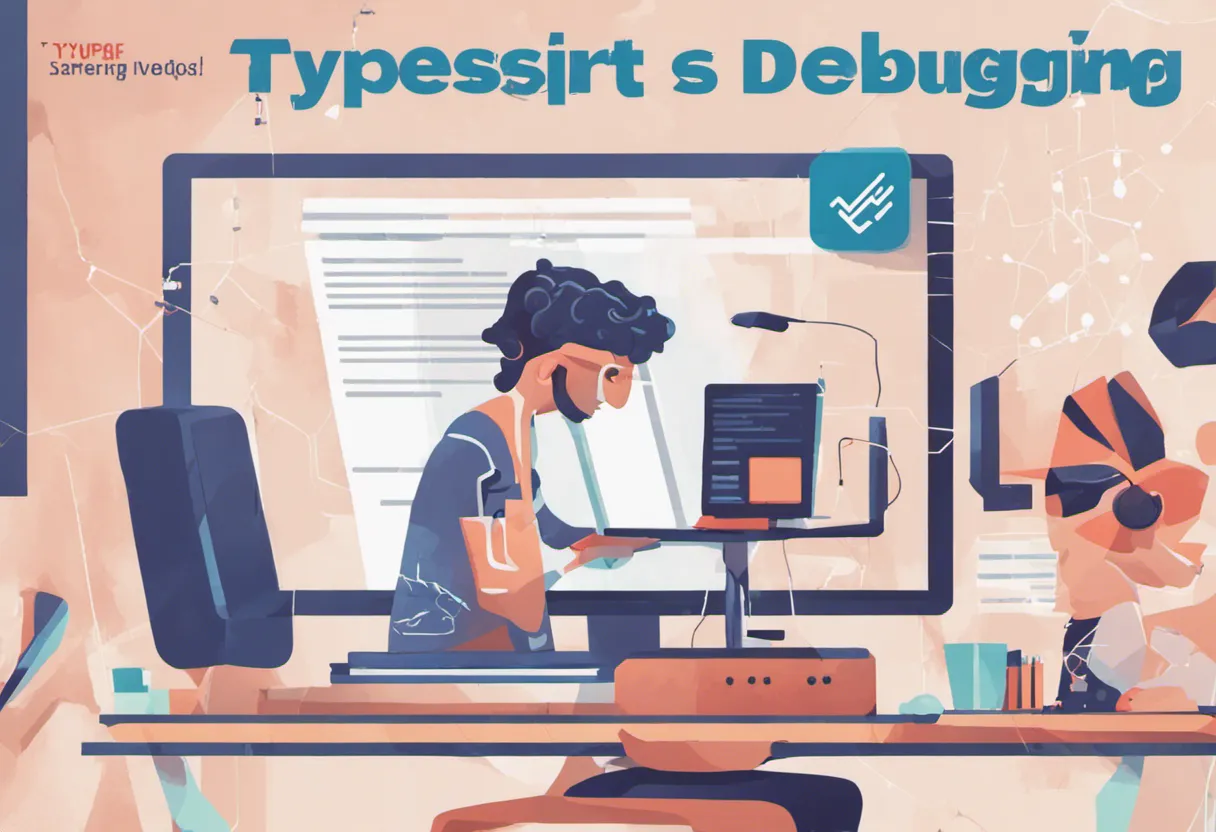TypeScript Debugging: Mastering Tools and Techniques for Seamless Development
ekwoster.dev

TypeScript Debugging: Mastering Tools and Techniques for Seamless Development
Introduction: TypeScript has gained tremendous popularity among developers due to its ability to catch errors at compile-time, enhancing the stability and maintainability of codebases. However, debugging remains an integral part of the development process. TypeScript debugging entails identifying and rectifying issues that arise during runtime, ensuring smooth execution and optimal application performance. In this article, we will delve into the realm of TypeScript debugging, exploring strategies to efficiently diagnose and solve problems in TypeScript applications.
TypeScript Debugging: Unveiling the Tools and Techniques:
Setting Up Debugging Environments: A seamless debugging experience begins with a well-configured environment. Editors like Visual Studio Code (VS Code) offer robust debugging capabilities for TypeScript. Integrating the TypeScript compiler and debugger within VS Code provides a powerful environment to identify and resolve bugs effectively.
Utilizing Breakpoints and Watches: Breakpoints allow developers to pause the execution of their code at specific lines, enabling a closer inspection of variables, state, and call stacks. Watches provide a way to monitor the values of selected variables as the program runs, aiding in real-time analysis. Leveraging these features significantly enhances the debugging process.
Harnessing TypeScript's Strong Typing: TypeScript's type system can be a valuable ally in debugging. By explicitly defining types for variables, functions, and interfaces, developers can catch type-related errors before runtime. This preemptive approach minimizes the occurrence of unexpected behaviors, saving time and effort during debugging.
Debugging Asynchronous Operations: Asynchronous code is prevalent in modern web applications, and debugging such operations can be challenging. Leveraging tools like async/await and promises, combined with effective error handling, simplifies the debugging of asynchronous workflows.
Effective Use of Debugging Extensions: The TypeScript ecosystem offers various debugging extensions that enhance the debugging experience. Extensions such as "ts-node" enable developers to directly run TypeScript files without the need for compilation, expediting the debugging loop.
Best Practices for Seamless TypeScript Debugging:
Start with Simple Cases: When encountering an issue, begin debugging with the simplest possible case that reproduces the problem. This approach helps in isolating the root cause and prevents unnecessary complexity.
Version Control and Debugging: Version control systems like Git play a crucial role in debugging. Creating branches for debugging purposes allows developers to experiment without affecting the main codebase.
Document Debugging Insights: Maintain a record of the debugging process, including observed behaviors, attempted solutions, and their outcomes. This documentation serves as a valuable resource for future reference.
Collaborative Debugging: Debugging complex issues can benefit from a collaborative approach. Platforms that enable real-time code sharing and debugging can facilitate efficient problem-solving among teams.
Regularly Update Dependencies: Outdated dependencies can introduce compatibility issues and bugs. Regularly update libraries, frameworks, and packages to ensure a smoother debugging experience.
Conclusion: TypeScript debugging is a skill that empowers developers to create more robust and reliable applications. By leveraging the tools, techniques, and best practices outlined in this article, developers can navigate through intricate debugging scenarios with confidence. Whether it's setting up debugging environments, harnessing TypeScript's type system, or employing collaborative debugging strategies, mastering TypeScript debugging is a crucial step toward becoming a proficient developer in the modern web development landscape.